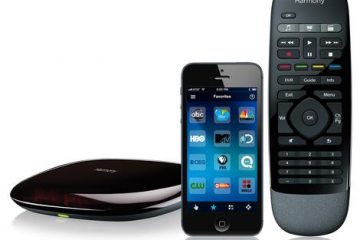So it looks like my track record for 2009 may not be all that bad, although for the most part my overzealous predictions anticipated greater adverse impact from the general state of the economy. Fortunately, things are looking better now so for 2010 these predictions should be a little more grounded.
Last year, I really went out on a limb with the open source adoption angle. The idea was quite simple, with the downturn in the economy it would be cheaper to deploy open source solutions than to purchase a commercial counterpart. As expected, this number is rather difficult to estimate. If you base it off desktop deployments with Linux you find possibly a 0.5% increase – and in the grand scheme of things this is one of the better annual adoption rates for Linux. The bigger story was the decrease in Windows market share, where the install base is shrinking on the order of 1% annually, and this appears to be translating primarily into a Macintosh user base.
While the iPod market remained strong, overall sales have plateaued while both the Microsoft Zune and the advent of Google’s Discover Music are going to continue to put significant pressure on Apple. So what’s in store for next year?
- Solid State Boot Drives. This has been brewing for some time now, but the price point on an SSD drive is starting to become reasonable. If it gets cut in half again for 2010 by the end of the year an 80GB solid state drive should be around $50. Microsoft has in fact built into Windows 7 a number of capabilities for solid state media, this will make it extremely likely that your next machine will at least boot from an SSD drive.
- Really Big Media Drives. The other story is really big hard drives, and 2010 will be the year that 4TB disks land on the desktop. These large disks are great for storing media, and the SSD makes an ideal boot volume. With the proliferation of HDTV PVR devices, larger media drives will become increasingly important while a hybrid boot model (SSD boot drive and standard hard drive) provide the best protection to consumers from system failure.
- Netflix Wins. The battle over a hi-def disc format is virtually over, but with the advent of HD streaming video from providers like Netflix it’s virtually irrelevant. You can stream Netflix media from so many different hardware devices, they are going to be able to demonstrate how much they own this market in the upcoming year. Expect to see content deals with major providers on the Netflix streaming network in 2010, you might even see your favorite TV show as a Netflix only event.
- Cloud Computing Reality Check. Users will discover that cloud computing is synonymous with network computing, and most IT organizations will reject this kind of platform in favor of internal systems they can maintain in a secure fashion. Some services will continue to be outsourced, the most notable being email, but for the most part core IT systems (marketing, HR and accounting) will continue to be supported internally.
- Tablet Computers. Tablet based computing has struggled on the Windows platform (CE / Windows Tablet Edition), and it doesn’t seem that Microsoft has been able to successfully pin down the platform paradigm. Apple will introduce a device in the coming year that will likely be a defining moment for tablet computing device. We should also anticipate an Android version of a tablet computer soon after the Apple tablet, if the tablet cannot be successfully molded in either of these devices then it will continue to diminish in importance.
- Firefox is the Primary Web Browser. The Firefox web browser will take over as the primary web browser in the new year, while Microsoft has some good versions of Internet Explorer their market is highly fractured and consequently no single Microsoft browser will be able to take a commanding share of the web browser market.
The real story will end up being how Apple continues to take market share away from Microsoft Windows. While Windows 7 has demonstrated itself as a good replacement for Vista, it remains to be seen if companies are going to be willing to migrate away from XP. In the end, many companies may find it easier to adopt alternate platforms (Mac / Linux) and virtualize XP to support legacy platforms. While Microsoft is offering a similar solution in Windows 7, it requires new hardware so it may prove cost effective to recommission a workstation with Ubuntu and boot XP virtually.


